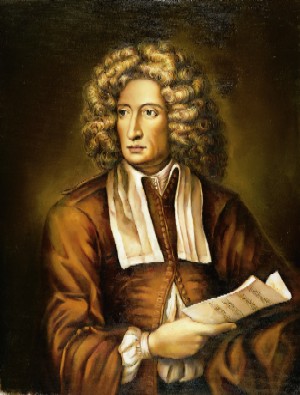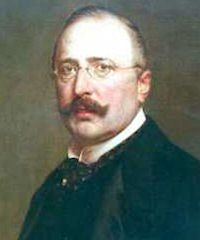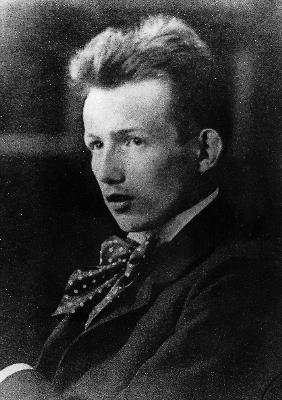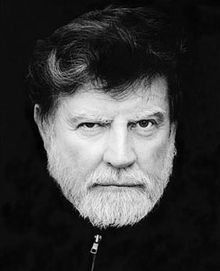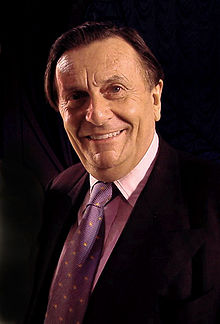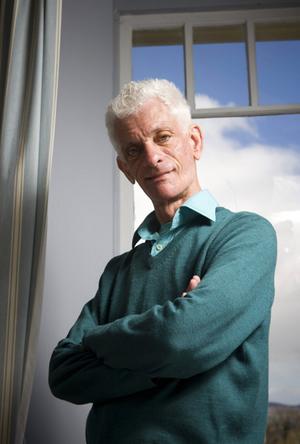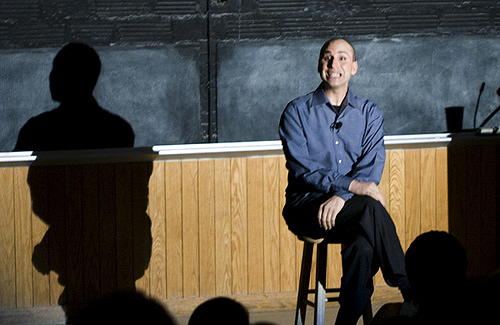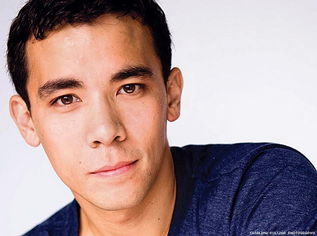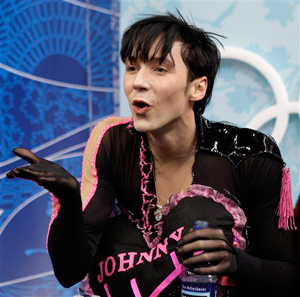|
presents THIS DAY IN GAY HISTORY based on: The White Crane Institute's 'Gay Wisdom', Gay Birthdays, Gay For Today, Famous GLBT, glbt-Gay Encylopedia, Today in Gay History, Wikipedia, and more …
Collected by Ted February 17 [{(o)}]|[{(o)}]|[{(o)}]|[{(o)}]| [{(o)}]|[{(o)}]
1653 – Arcangelo Corelli, born in 1653 in Fusignano, an Italian village between Ravenna and Bologna, was one of the seventeenth century's most widely admired composers and performers (d.1713). His music has lasting appeal largely due to its refined sense of poise, the balance of all the forces within each composition, and its modern tonality. Some works are regarded as models of perfection, and Corelli himself has been called "a modern Orpheus." Famous not only as a composer, he was also regarded as the foremost violinist of his day. In addition, he was also admired for his skills as a music teacher. Much of the information that exists about Corelli, especially about his early days as a student in Bologna, is unreliable. Corelli's personal life has been the subject of much speculation. Most scholars now believe him to have been discreetly homosexual. He never married and lived closely with male friends. Corelli's rise to fame was meteoric, helped by the fact that music publishing began to proliferate in the early eighteenth century. His rise was also spurred by his influential patrons: Queen Christina of Sweden; Cardinal Pamphili, then the richest man in Rome; and the young and princely Cardinal Ottoboni, the nephew of Pope Alexander VIII. He thus enjoyed the patronage of the most influential people at a time when Rome became a flourishing center of music in Europe. Corelli became utterly devoted to one of the Cardinal's employees, the second violinist Matteo Fornari, whom he met in 1682. According to one source, the composer was never far from Matteo's side for close on twenty years after that first meeting. This long standing intimacy is alluded to in the two fine trio sonatas dedicated to Corelli and Fornari by the younger composer Guiseppe Valentini. Fornari oversaw the publication of Corelli's Opus VI concertos after Corelli's death. Corelli moved in the same circles as George Frideric Handel, now also widely believed to have been homosexual. Although Corelli's music influenced Handel's, Corelli claimed not to understand Handel's work, which was much fuller in texture and required more dynamic force than his own works. He said that he would be unable to play it correctly. Corelli was admitted to the Academy in Rome, along with fellow composers Bernardo Pasquini and Alessandro Scarlatti in 1706. Two years later, he retired from public life. He died in 1713, a wealthy and widely respected man. He was buried in the Pantheon, next to the painter Raphael.
1854 – The German armaments heir Friedrich Alfred Krupp was born on this date (d.1902). The Krupp family, a prominent 400-year-old German dynasty from Essen, have become famous for their steel production and for their manufacture of ammunition and armaments. It was under Alfred Krupp that many new products that would do much to change history were authorised. Hiram Maxim peddled his machine gun, and Rudolf Diesel brought his new engine to Krupp to construct. Fritz was, therefore, the first to bring Europe diesel engines. The programme that eventually resulted in the German U-Boat fleet was also begun during his tenure. Brought up like Frederick the Great, to fulfill the ambitions of a father who hated him, the heir to the German munitions empire had spent much of his life waiting for his old man to die so he could cut loose. And cut loose he did, particularly in Italy, at Capri, where he consecrated a "holy" grotto - "the Hermitage of Fra Felice" - dedicated to entertaining Italian youths. Within the grotto, and dressed in the robes of a Franciscan monk, Fritz Krupp would frolic with his favorite boys as sex was accompanied by three violins and orgasms by fireworks. The crowning touch was a delightful bit of Teutonic kitsch: As in a Playboy Club, with all the bunnies adolescent males, "members" were given keys, shaped like miniature golden bullets and designed by Fritz himself. He spent as much time as he could in Capri, pursuing his first loves of oceanography and men. For the times when he had to be in Germany, he arranged for his favorite Italian youths to work at a luxury hotel in Berlin, where he often stayed for their service and where other guests complained about the noises coming from his inner sanctum. Accustomed to enormous power — by the turn of the century he had built Krupp into the largest company in Europe — he ignored others' objections. In 1902 he, and the painter Christian Wilhelm Allers, were caught up in a scandal involving the youths Fritz had "procured" in Capri and transported to the Bristol hotel in Berlin (after even the corrupt Capri authorities had had enough of his pederasty). A tumultuous few weeks ensued, which ended in the death of Fritz, ostensibly of a stroke, though suicide is a more probable answer.
1888 – Hans Blüher, born in Freiburg in Schlesien, (d.1955 in Berlin) was a German writer and philosopher. He attained prominence as an early member and "first historian" of the Wandervogel movement ("Wandering Birds" a youth hiking movement, often accused of fostering homosexual liaisons). His fame was aided was by his taboo-breaking rebellion against schools and the Church. Partly received with genuine interest, but sometimes perceived as scandalous, his comments on the homosexual aspects of the Wandervogel movement and the role homoeroticism and male bonding played in the creation of European culture and institutions were fiercely combated. Blüher supported these with a theory of the Männerbund (Male Bonding). During the transition from the German Empire to the Weimar liberal-democracy, Blüher, a radical conservative and monarchist, became a staunch opponent of the Weimar Republic. In 1928 he had the opportunity to meet the former Kaiser Wilhelm II in exile in Holland. Blüher believed that pederasty and male bonding provided a basis for a stronger nation and state, which became a popular concept within certain segments of the Hitler Youth. Blüher later supported the Nazis but turned from National Socialism in 1934 when SA leader Ernst Röhm was murdered on Hitler's orders in the Night of the Long Knives. After 1924, Blüher, who had married a doctor and had two children, worked as a freelance writer and practicing psychologist in Berlin-Hermsdorf. He worked there after his retirement from public life during the Nazi period on his major philosophical work of 1949, Die Achse der Natur (The Axis of Nature).
1923 – Utah amends its sodomy law to outlaw oral sex and to increase the penalty to 3-20 years.
1926 – Lee Hoiby (d.2011) was an American composer and classical pianist. Best known as a composer of operas and songs, he was a disciple of composer Gian Carlo Menotti. Like Menotti, his works championed lyricism during a time when such compositions were deemed old fashioned and irrelevant to modern society. His most well known work is his setting of Tennessee Williams's Summer and Smoke which premiered at the St Paul Opera in 1971. Born in Madison, Wisconsin, Hoiby was a child prodigy who began playing the piano at the age of 5. He studied at the University of Wisconsin under notable pianists Gunnary Johansen and Egon Petri. He then became a pupil of Darius Milhaud at Mills College. Following his studies at Mills College, he entered the Curtis Institute of Music where he was mentored in music composition by Gian Carlo Menotti, who introduced Hoiby to opera, and involved him in the Broadway productions of The Consul and The Saint of Bleecker Street. Though at first he intended to pursue a career as a concert pianist, he eventually became more interested in composing. Hoiby's first opera, The Scarf, a chamber opera in one act, which was produced by Menotti and premiered in 1957, was recognized by TIME and the Italian press as the hit of the first Spoleto Festival. His next opera, Natalia Petrovna (New York City Opera, 1964), now known in its revised version as A Month in the Country, based on a play by Ivan Turgenev, was also praised by critics. Hoiby's setting of Tennessee Williams's Summer and Smoke is perhaps his most famous work. Its libretto is by Lanford Wilson, and it was premiered in 1971 by St Paul Opera, Minnesota, under the conductor Igor Buketoff. Soprano Leontyne Price introduced many of his best known songs and arias to the public. His songs are known for being inspired by music from many time periods and cultures. Hoiby died on March 28, 2011, aged 85, in New York City from metastatic melanoma. He was survived by his partner and longtime collaborator, Mark Shulgasser.
1934 – On this date the British actor of stage, screen and television Sir Alan Bates, CBE was born (d.2003). In 1956, Bates debuted on stage in the West End as Cliff in Look Back in Anger, a role he had originated at the Royal Court and which made him a star. He also played the role on television (for the ITV Playhouse) and on Broadway. In the late 1950s, he appeared in several plays for television in Britain. In 1960, he appeared in The Entertainer opposite Laurence Olivier, his first film role. Throughout the 1960s he starred in several major films including Whistle Down the Wind (1961), A Kind of Loving (1962), Zorba the Greek (1964), Phillipe de Broca's King of Hearts (1966), Georgy Girl (1966), Far From the Madding Crowd (1967), and in the Bernard Malamud film The Fixer (1968), which gave him an Academy Award nomination for Best Actor. In 1969, he starred in Women in Love (in which, along with Oliver Reed he became the first actor to do frontal nudity in a major studio motion picture - and for which a generation of gay men will be eternally grateful) but he consciously decided to concentrate on a few well-defined roles, rather than to take everything that came his way.. Bates was handpicked by director John Schlesinger (with whom he had previously worked on Far From The Madding Crowd) to star in the film Sunday Bloody Sunday (1971) in the role of Dr. Daniel Hirsh. Bates was held up filming The Go-Between (1970) for director Joseph Losey, and had also become a father around that time, and so he had to pass on the project. The part then went first to Ian Bannen, who balked at kissing and simulating sex with another man, and then to Peter Finch, who earned an Academy Award nomination for the role. Bates continued to work in film and television throughout the 1970s and 80s, and starred in such international films as An Unmarried Woman (1978), Nijinsky (1980), and also played Bette Midler's ruthless business manager in the 1979 film The Rose. On television, his parts ranged from classic roles such as 1978's The Mayor of Casterbridge (his favourite role he said), and An Englishman Abroad (1983) (playing Guy Burgess. In 2001, Bates joined an all-star cast in Robert Altman's critically acclaimed period drama Gosford Park, in which he played the butler Jennings. He later played Antonius Agrippa in the 2004 TV film Spartacus, but died before it debuted. The film was dedicated to his memory and that of writer Howard Fast, who wrote the original novel that inspired the film Spartacus by Stanley Kubrick. Bates had numerous Gay relationships throughout his life, including those with actors Nickolas Grace and Peter Wyngarde, and Olympic skater John Curry. In 1994 Curry died from AIDS in Bates' arms. Even when homosexuality was partially decriminalized in Britain in 1967, Bates rigorously avoided interviews and questions about his personal life, and even denied to his lovers that there was a Gay component in his nature. Throughout his life Bates sought to be regarded as a ladies' man or at least as a man who, as an actor, could appear attractive to and attracted by women. In the later years of his life, Bates' companion was his lifelong friend, actress Joanna Pettet, his co-star in the 1964 Broadway play Poor Richard. They divided their time between New York and London.
Humphries, who ws heterosexual, distanced himself from the notion that playing Everage is playing drag, yet he consciously performed her role with a campy excess and sensitively cultivated a gay and lesbian following. His great success as Everage therefore came without denying the gay and lesbian contribution to cross-dressing entertainment. Humphries was born in 1934 into an upper-middle-class family in Melbourne, Australia, where he spent a comfortable youth. His pleasant, though mundane, surroundings as a boy would later inspire his creation of Edna Everage, equally a product of understated Australian suburbia, but one catapulted into a world of glamor and sophistication by which she is slightly bewildered. Humphries' persona of Edna Everage earned him the most notoriety and greatest success. Performed on stage and as the hostess of a successful British talk show, An Audience with Dame Edna, the character took on a life of her own. 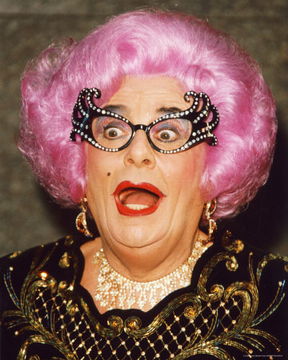 Dame Edna In both his theater performances and broadcasts as Everage, Humphries adopted the conceit that this Australian housewife has become fantastically successful as a celebrity and wishes to share the wisdom of her transformation. In one particularly interesting example, Humphries/Edna invited notorious homophobe Mary Whitehouse to be interviewed on An Audience with Dame Edna. Although Whitehouse was then head of Britain's National Viewers and Listener's Association, a reactionary group fighting "inappropriate" broadcast content, she found herself on television politely chatting with a man dressed as a woman. The queering of the socially conservative discourse spoken by both Whitehouse and Dame Edna made Humphries's implied critique a comic pleasure for most of his audience. Humphries pursued these same queering strategies in his Broadway successes Dame Edna: The Royal Tour (1999) and Dame Edna: Back with a Vengeance (2004). He also continued courting gay men, whom he refered to as "friends of Kenny," both in the gay press and on stage and television. Since the late '60s Humphries appeared in numerous films, mostly in supporting or cameo roles. His credits include Bruce Beresford's Barry McKenzie Holds His Own (1974) in which Edna was made a Dame by then Australian Prime Minister Gough Whitlam. He also had a cameo as Edna in the Robert Stigwood musical film Sgt. Pepper's Lonely Hearts Club Band (which became infamous as one of the biggest film flops of the decade). In 2003 Humphries had a role in the animated film Finding Nemo. In it he plays Bruce, a shark who attempts to curb his addiction to fish eating. He nearly falls off the wagon due to his catching a whiff of fish blood. Playing this role, given his own struggles with alcoholism, was perhaps a good example of Humphries' penchant for self-deprecation. During 2011, Humphries travelled to New Zealand to perform the role of the Goblin King in the first instalment of Peter Jackson's three-part adaptation of J. R. R. Tolkien's The Hobbit. The first film was released in December 2012, with the other two parts due in December 2013 and December 2014. In 2015, Humphries voiced the role of Wombo the Wombat in Blinky Bill the Movie.
1944 – A self-described dilettante, Australian translator, editor, essayist, travel writer, and novelist Robert Dessaix did not publish his first book until he was fifty. Two novels later he is recognized as an important voice in Australian gay literature. While teaching in Canberra, Dessaix met the woman he would marry in 1970. A few years later the marriage finally ended when she, having moved to New Zealand for a new job, asked him not to return once he had helped her settle in. Devastated, he resumed his teaching position in Canberra. Although Dessaix's first homosexual encounter—in his twenties with a young man he met in Paris—had nauseated him, during his marriage Dessaix had recognized that he was attracted to men, but he never acted on the desire. After the dissolution of his marriage, however, he moved to Sydney in 1978 and submerged himself in the gay subculture there, including bars, cafes, and bathhouses. In 1982 a personal ad Dessaix had placed was answered by Peter Timms, who has been his partner ever since. In 1996 he published the novel Night Letters. In the novel, a man, R., having been diagnosed with an unnamed illness (which can be inferred to be AIDS), takes a sojourn to Italy. Divided into three parts—the Locarno, Vincenza, and Padua letters—and influenced by Dante's The Divine Comedy, the book is composed of twenty letters that R. writes during his travels in Italy. Dessaix's second novel, Corfu, published in 2001, involves the narrator in Italy meeting a male lover, who is to accompany him back to Adelaide, Australia, but finds he is involved with a another man, a mutual friend. Dessaix has been open about his positive HIV-status for the past ten years. He and Timms now reside in Tasmania.
1965 – Peterson Toscano, born in Stamford, Connecticut, is a playwright, actor, Bible scholar, blogger, and gay activist. Toscano spent nearly two decades undergoing ex-gay treatment and conversion therapy before accepting his homosexuality and coming out as a gay man. He has since shared his experiences internationally through various media outlets, especially plays. Raised as a Christian, Toscano spent seventeen years in the ex-Gay movement unsuccessfully attempting to alter his sexual orientation through reparative therapy. In 2003, he premiered his one-man satire Doin' Time in the Homo No Mo Halfway House and has since performed it throughout the US, Canada and Europe. His other works include Queer 101, How the Indians Discovered Columbus, Footprints—An Inspirational Comedy, The Re-Education of George W. Bush, and Transfigurations — Transgressing Gender in the Bible. He has served as an outspoken critic of the ex-gay movement in the UK. In August 2006 at the Greenbelt Festival he presented a talk about his own ex-gay experiences and personal journey. In July 2008 he offered two talks at the Lambeth Conference in Kent where he discussed being "gay and Christian" and about the dangers of conversion therapy. In an article for the British newspaper The Times Toscano spoke of the ex-gay movement in Great Britain: "'It is a far more subtle seduction over here,' he says. Toscano claims that therapists in Britain – who he says tried to exorcise his gay demons in Kidderminster, in the West Midlands – nearly drove him to suicide." In December 2008 Toscano traveled to South Africa and highlighted the potential dangers in receiving conversion therapy. In addition to print, television and radio, Toscano appears in various documentaries including the 2005 film Fish Can't Fly, which explores the conflict that many lesbians and gays have had with their Christian faith, and the 2008 Canadian documentary Cure for Love. Peterson Toscano lives in Sunbury, Pennsylvania with his husband, South African writer Glen Retief.
1972 – Billie Joe Armstrong is an American musician, singer, songwriter and occasional actor. He is best known as the lead vocalist, principal songwriter, and guitarist of the punk rock band Green Day, which Armstrong co-founded with Mike Dirnt. He is also a guitarist and vocalist for the punk rock band Pinhead Gunpowder and provides lead vocals for Green Day's side projects Foxboro Hot Tubs and The Network. Raised in Rodeo, California, Armstrong developed an interest in music at a young age, and recorded his first song at the age of five. He met Mike Dirnt while attending elementary school, and the two instantly bonded over their mutual interest in music, forming the band Sweet Children when the two were 15 years old. The band changed its name to Green Day, and would later achieve massive commercial success. Armstrong has also pursued musical projects outside of Green Day's work, including numerous collaborations with other musicians. He also co-owns the record label Adeline Records, with his wife Adrienne and skateboarder Jim Thiebaud, with the collaboration of Green Day's guitarist Jason White and more recently Green Day's manager Pat Magnarella. Armstrong has identified himself as bisexual, saying in a 1995 interview with The Advocate, "I think I've always been bisexual. I mean, it's something that I've always been interested in. I think people are born bisexual, and it's just that our parents and society kind of veer us off into this feeling of 'Oh, I can't.' They say it's taboo. It's ingrained in our heads that it's bad, when it's not bad at all. It's a very beautiful thing." In a later interview for Out magazine's April 2010 issue, Armstrong stated: "There were a lot of people who didn't accept it, who were homophobic." Armstrong continued, saying, "The fact that it's an issue is kind of phobic within itself. At some point, you gotta think, this should be something that's just accepted." Armstrong added: "I don't really classify myself as anything. And when it comes to sex, there are parts of me that are very shy and conservative. I want to respect my wife."
1979 – Conrad Ricamora is an American actor and singer, best known for his portrayal of Oliver Hampton on ABC's legal drama series How to Get Away with Murder. Ricamora was born in Santa Maria, California. He is the son of Ron Ricamora, who was in the US Air Force, and social worker Debbie Bolender. His father was born in Manila, Philippines and moved to the US when he was 10. His father is believed to be of Filipino descent but is adopted, and his mother is of German/Irish descent. He is openly gay and was honored with The Human Rights Campaign's Visibility Award. In 2014 he was cast in the recurring role as Oliver Hampton, Jack Falahee's character's love interest, on the ABC legal drama series How to Get Away with Murder. He continued to make guest starring appearances on the show in the second season. However, just one day after the show aired its season 2 finale, Ricamora was promoted to a series regular in the third season on March 18, 2016. Ricamora plays Lun Tha, one of the pair of secret lovers, in Lincoln Center Theater's 2015 Broadway revival of Rodgers and Hammerstein's The King and I, directed by Bartlett Sher. The 2015 Broadway cast recording of the musical received a Grammy Award nomination for Best Musical Theater Album
1991 – Raymix is the stage name of Edmundo Gómez Moreno, a Mexican musician and aerospace engineer. Nicknamed El Rey de la Electrocumbia ("The King of Electrocumbia"), Raymix started his music career in the early 2010s, when he joined a trance project called Light & Wave with two other Mexican musicians. Their song "Feeling the City" was featured on the Armin van Buuren radio show A State of Trance. In 2013, Raymix was invited to work in a NASA educative internship, where he helped to develop a satellite. Around 2015, Raymix gained popularity thanks to the song "Oye Mujer", a well-known track among tianguis sellers, sonideros, and illegal music distributors. Raymix signed with Universal Music Latin Entertainment and in 2018 he released his debut album Oye Mujer. During the same year, "Oye Mujer" was re-released as single and also was remixed and released as a duet with Colombian singer Juanes. The song both topped the Billboard Regional Mexican Airplay and Tropical Airplay charts. Additionally, it reached number 6 on the Bubbling Under Hot 100 chart, and has been certified 14× Multi-Platinum (Latin) by the Recording Industry Association of America (RIAA) and Diamond + 2× Platinum by the Asociación Mexicana de Productores de Fonogramas y Videogramas (AMPROFON). Edmundo Gómez Moreno was born in San José El Vidrio, a community located in Nicolás Romero, State of Mexico. Multiple members of his family are musicians, including his grandfather, his cousin, and his father is a grupero musician. When he was a child, Gómez learned to play the keyboard, and his father taught him Los Tigres del Norte songs. Additionally, he learned singing and to play the drum kit, the guitar and the organ at church. On his 18th birthday, Gómez was given a MIDI controller, with which he started to compose trance songs. Between 2011 and 2012, Gómez joined two other Mexican musicians and they created Light & Wave. Their song "Feeling the City" was featured on two episodes of the Armin van Buuren radio show A State of Trance. Around this time, Gómez was studying aerospace engineering at the Instituto Politécnico Nacional, in Mexico City, for a space systems degree. In 2013, Gómez joined a NASA education internship, where he helped to develop an education satellite. During his time there, he listened to cumbias and, in 2014, he composed "Oye Mujer". According to Raymix, Alberto Pedraza (composer of "Guaracha sabrosona") borrowed him his loudspeakers, and with two cellphones and 3,000 pesos he recorded a music video for the song. In 2015, Gómez was unable to get a job in the US despite his academic formation and qualifications. On 5 June 2020, Raymix released a video where he came out as gay, saying "Today I am freer, happier than ever because now I know that I can express myself as I really am", and added that some acquaintances advised him to not do so because they consider that people are not prepared for a gay regional or cumbia musician.
2011 – Facebook expands relationship language to add civil unions and domestic partners
[{(o)}]|[{(o)}]|[{(o)}]|[{(o)}]| [{(o)}]|[{(o)}] |
